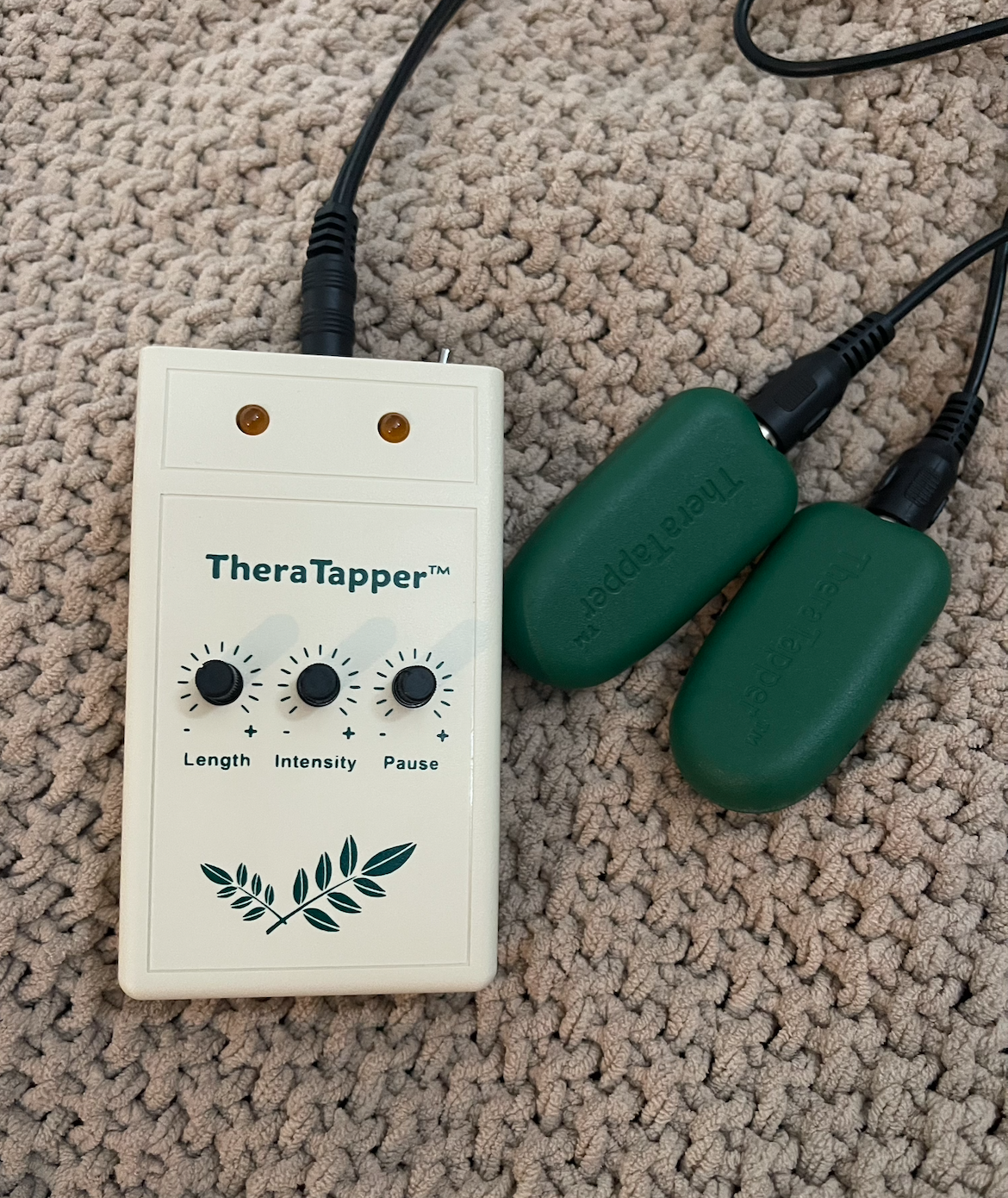
EMDR
What is EMDR?
EMDR, Eye Movement Desensitization Reprocessing is a powerful, evidence based way to help your brain heal from trauma.
Think of trauma like a wound that didn’t heal properly, EMDR helps your brain go back, clean out the wound, and let it finally heal the way it was meant to. The painful memory doesn’t go away, but it loses its emotional charge. You can remember what happened without feeling overwhelmed or re-triggered.
EMDR uses a structured approach that includes side-to-side eye movements or other forms of bilateral stimulation while you briefly focus on parts of the upsetting memory. The completed full stages help distress the original negative event, beliefs, and symptoms.
Types of Bilateral Movements
AKA: Engages Left/Right Brain Hemispheres
Visual Finger following eye movements
Tactile Taps, TheraTapper
Auditory Sounds
How can it help me?
Any Event that causes a distressing reaction or negative belief about yourself
Phobias
Grief
Anxiety
Sexual Assault
Frequently Asked Questions
-
EMDR can be helpful for a wide range of experiences: trauma, anxiety, grief, overwhelming memories, or even a general sense of being stuck. If you're not sure, that’s okay. We can talk it through together and see if this approach feels like a fit for you.
-
Each session is 90 minutes, giving us the space and time to slow down, go deeper, and let the work unfold at your pace. Many clients find that this longer format allows them to feel less rushed and more grounded during EMDR therapy.
-
No, you don’t. One of the strengths of EMDR is that it doesn’t require you to relive or describe every detail of what happened. We’ll work together to identify what your brain is still holding onto. EMDR will help process it in a way that feels safe and manageable.
-
Everyone’s experience is different. Many people notice shifts like: emotions rising and falling, bodily sensations, new insights surfacing, or a memory beginning to feel less intense. You might feel tired afterward, or you might feel lighter.
-
Safety is the foundation of everything we’ll do. Before we ever begin EMDR, we’ll spend time building trust, learning tools to help you stay grounded, and making sure you feel ready. You’re always in control, we go at your pace, and we only do what feels right for you.
-
No, this is not hypnosis. You are fully awake, in control, and grounded in the present.
-
Good news! It doesn’t erase your memory. It only makes the original event or image less emotionally charged.

